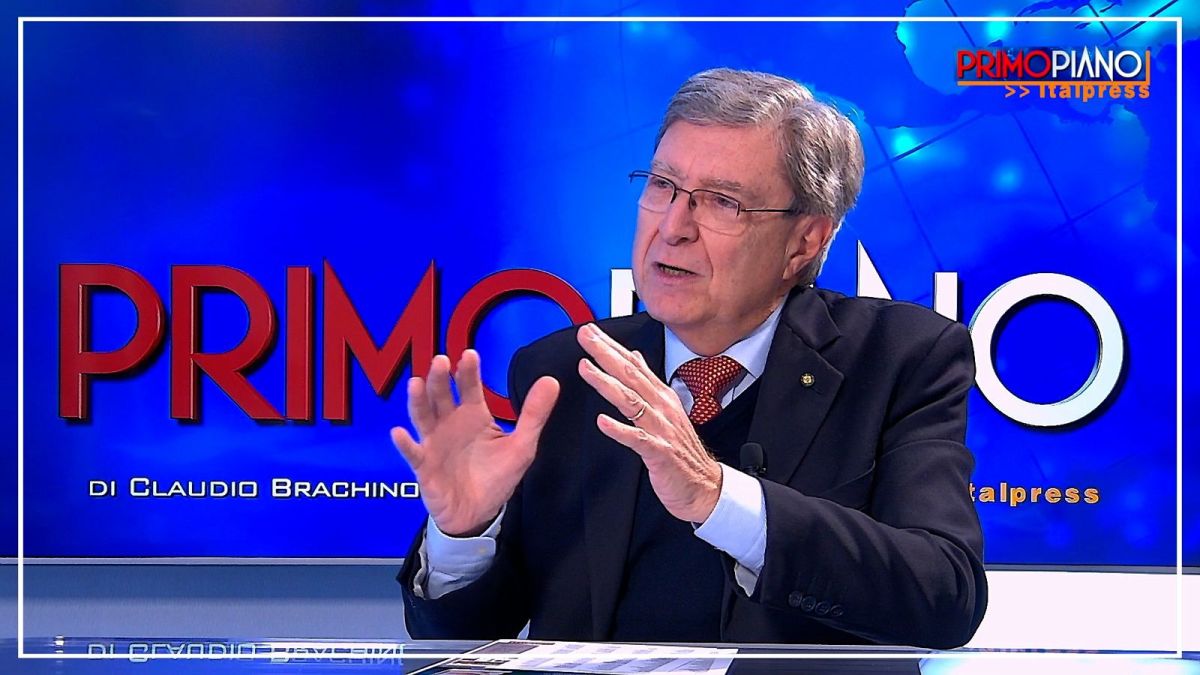ROME (ITALPRESS) – A reflection on how Europe, and by reflection Italy as well, is going about the ecological transition, both collectively and in the individual approaches of member states: this is given by Enrico Giovannini, scientific director of the Italian Alliance for Sustainable Development (ASviS), interviewed by Claudio Brachino for the Primo piano column of Agenzia Italpress.Giovannini, who was minister of Labor in the Letta government and minister of Infrastructure in the Draghi government, first tells what goals ASviS set for itself when it was founded in 2016: “The Alliance was born immediately after the approval of the UN 2030 Agenda: is a grand plan to transform the world, trying to bring the culture of sustainable development into schools, universities and businesses and explaining to stakeholders how to move towards achieving the 17 Sustainable Development Goals; ASviS does annual monitoring precisely to see if countries are meeting their commitments to the UN,” Giovannini says. On the environment, we are committed to reducing emissions and pollution, which in Europe causes 300 thousand premature deaths a year.” On Friday, the Alliance’s scientific director explains, a study “on sustainability in the Italian territories will be presented at the Cnel: it is a snapshot of how regions, provinces and municipalities are positioned with respect to the 17 goals. Italy is very diverse, but some territories are further ahead: the inequality is not only between north and south, but within the regions themselves. “The ecological transition, Giovannini stresses, should be identified as “a transformation of our way of consuming and producing: at risk is not the environment, but hundreds of millions of people who have to move because of droughts or floods. This transformation, which also affects other sectors, will have winners and losers: we are all excited about artificial intelligence and the digital transition, but we may lose jobs and increase inequality; after the transition, the big companies that dominate the IT sector will win, while those in energy will lose. Europe in the last five years has made a huge leap on this: for example, the Sustainability Reporting Directive requires large and medium-sized companies to review the environmental and socioeconomic impact of their actions. A federal budget is still lacking, because member states do not want to cede sovereignty. “A large chapter of Giovannini’s reflection is devoted to the Green Deal: “It is a very large set of regulations, disassembling it is not easy because it has to go through both governments and the European Parliament: there can be all the adjustments necessary, but it still represents an ideological symbol; there are pushes to revise some regulations, for example on automotive, but an agreement is needed in Parliament. When ideas to revise the Green Deal began to circulate, so many European companies signed a manifesto asking not to go backwards, since they had already invested so much: those who invest in the transition gain competitiveness, productivity, profits and employment. “The ASviS scientific director then urges people to see the Green Deal not as “an environmentalist strategy, but a development strategy: the whole strategy of the plan goes toward transforming the production system, and companies have no desire to go backwards. If Europe wants to make a qualitative leap, it must give up a piece of sovereignty: the underlying theme of this legislature is precisely whether we will move toward a more federal Europe or not.”
– Italpress photo -(ITALPRESS).

